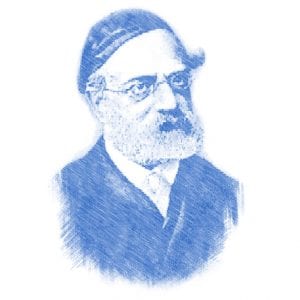
TORAH
NEVI'IM
KETUVIM
Chapter 70
Translation and Transliteration of
Listen to this chapter in Hebrew:
- Commentary
- Buy E-book
- Buy the Israel Bible
1For the leader. Of David. Lehazkir.
אלַמְנַצֵּחַ לְדָוִד לְהַזְכִּיר׃
2Hasten, O Hashem, to save me; Hashem, to aid me!
באֱלֹהִים לְהַצִּילֵנִי יְהֹוָה לְעֶזְרָתִי חוּשָׁה׃
3Let those who seek my life be frustrated and disgraced; let those who wish me harm, fall back in shame.
yay-VO-shu v'-yakh-p'-RU m'-vak-SHAY naf-SHEE yi-SO-gu a-KHOR v'-yi-kal-MU kha-fay-TZAY ra-a-TEE
גיֵבֹשׁוּ וְיַחְפְּרוּ מְבַקְשֵׁי נַפְשִׁי יִסֹּגוּ אָחוֹר וְיִכָּלְמוּ חֲפֵצֵי רָעָתִי׃
![]() 70:3 Let those who seek my life be frustrated and disgraced
70:3 Let those who seek my life be frustrated and disgraced

Rabbi Samson R. Hirsch (1808-1888)
As a leader of Israel, David leads two lives: A public, national one, and a private one. This psalm focuses on the personal suffering of David which he seeks to always remember, as he writes in the title of the psalm, lehazkir (להזכיר), which literally means to ‘remind’ or ‘mention.’ David has enemies who seek to destroy him personally. They mock him, deceive him and act traitorously toward him, in order that he will be derided in front of the nation. Rabbi Samson Raphael Hirsch notes that David seeks the ultimate failure of these enemies and their shame and humiliation, not out of vengeance, but rather so that these cruel Israelites will repent. Often, it is only the shock and humiliation of defeat that brings one to introspection and to change his errant ways.
4Let those who say, “Aha! Aha!” turn back because of their frustration.
דיָשׁוּבוּ עַל־עֵקֶב בָּשְׁתָּם הָאֹמְרִים הֶאָח הֶאָח׃
5But let all who seek You be glad and rejoice in You; let those who are eager for Your deliverance always say, “Extolled be Hashem!”
היָשִׂישׂוּ וְיִשְׂמְחוּ בְּךָ כָּל־מְבַקְשֶׁיךָ וְיֹאמְרוּ תָמִיד יִגְדַּל אֱלֹהִים אֹהֲבֵי יְשׁוּעָתֶךָ׃
6But I am poor and needy; O Hashem, hasten to me! You are my help and my rescuer; Hashem, do not delay.
ווַאֲנִי עָנִי וְאֶבְיוֹן אֱלֹהִים חוּשָׁה־לִּי עֶזְרִי וּמְפַלְטִי אַתָּה יְהֹוָה אַל־תְּאַחַר׃








